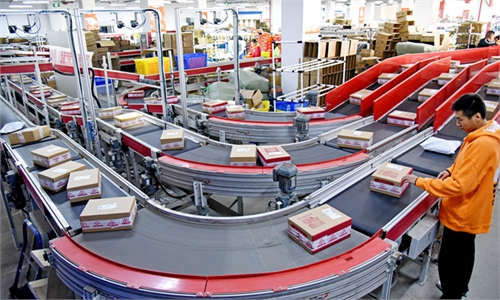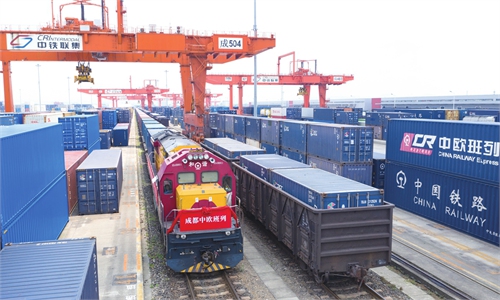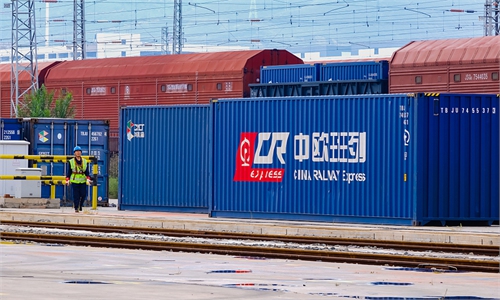Americans to greet 'most expensive’ Christmas due to elevating inflation, ports logjam

A customer buys Christmas trees at Yiwu International Trade City, East China's Zhejiang Province on December 11. Photo: Yang Hui/GT
The US may face the most expensive Christmas and New Year holidays this year since the pandemic outbreak, driven by surging inflation, and logistics hurdles, market watchers say.
While long-distance sea cargo rates between China and the US have dropped from historic peaks, they're still hovering at about $14,000-16,000, a fairly high range, due to tight transportation capacity.
"Importers certainly welcome the decline in freight rates, but due to port congestion, low inventories and high consumer demand, prices may still be much higher than normal," a logistics insider told the Global Times on Tuesday.
High costs for freight, bulk commodities and labor continue to have side effects on downstream industries, keeping the prices for Christmas goods and other home products at high levels, industry insiders said, and the situation is unlikely to ease for the rest of the year.
Most of the Christmas-related orders sent to Yiwu, East China's Zhejiang Province, the world's supermarket of small commodities, faced price rises of 5-10 percent over last yeaer, Cai Qinliang, secretary-general of the Industry Association of Christmas Supplies in Yiwu, told the Global Times on Tuesday.
Some other household items such as small appliances are seeing a general price rise, which may be related to the resilient home economy amid the continuing epidemic in the US, a trader manager surnamed Zhao based in Yiwu said.
Longer berth waiting times at some US ports are making it difficult for more ships to go back and forth between Asia and the US, eroding shipping capacity and keeping rates high, media reports said.
Several traders and producers based in Yiwu and South China's Guangdong Province told the Global Times that in order to digest their old orders and cut losses, some companies have stopped taking new orders for this year.
Most of the Christmas and New Year goods for this year's holidays were delivered from June to September, but due to high freight rates, some international traders are less willing to take new orders. As a result, some orders are still waiting to be shipped, Zhao said.
It's not just holiday goods. Price increases and supply shortages have affected almost every field in the US, media reports said.
According to the US Department of Labor, the US Consumer Price Index rose by 0.9 percent in October. In the 12 months ended in October, the US' annual inflation rate rose by 6.2 percent, reaching the highest level in 31 years.
With the implementation of Fed's unlimited quantitative easing, inflation in the US is serious, said Zhang Jianping, director of the Center for Regional Economy with the Chinese Academy of International Trade and Economic Cooperation.
Despite high prices, the resilient demand for Chinese goods persisted. Orders for Christmas-related goods from Yiwu for the whole year are expected to increase by 20-30 percent, Cai said. International orders this year have recovered by 80 percent, compared with 2019.



